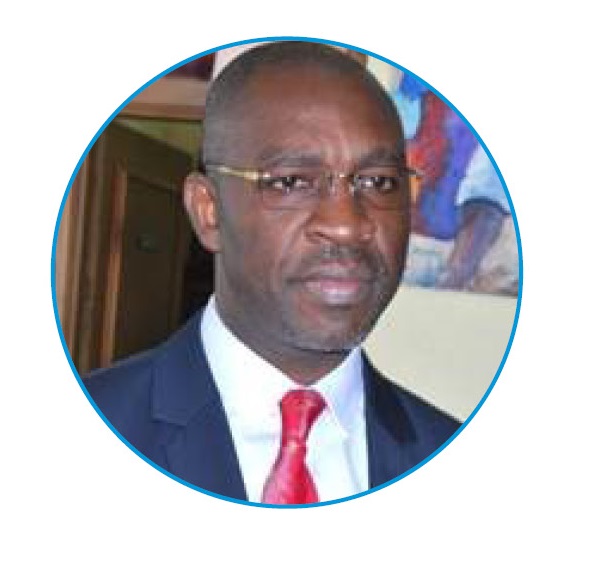Regional perspective for statistics: “No one left behind”!
The emulation within a regional project is firstly a powerful vehicle for disseminating good practices, improving statistical production and harmonising the data produced. All countries in the region benefit from these positive effects.
For the Least Developed Countries, the cooperation with other countries in a structured framework allows them to access tools and practices which they would not have had the capacity to develop themselves and alone. Sharing information and experience makes it possible to identify good practices, which are subsequently intended to be replicated.
For the most developed countries in the group, the benefit of regional cooperation can firstly be seen through self-examination. It can lead to certain approaches being reconsidered and readjusted where necessary. Secondly, there is the possibility of opening up their activities more to South/South cooperation and thereby enhancing their array of know-how.
Towards a regional harmonisation of methods and practices
The regional perspective also allows effective technical cooperation to be implemented and therefore joint work to be launched on harmonising methods and practices.
Certain statistical areas are well covered by international standardisation efforts: it subsequently involves helping the group to apply them in the best possible way, with the exchange between countries allowing solutions to be shared. In these times of budgetary restrictions, it is also easier to mobilise high-quality external support in a group than individually. Other areas are not so well covered by international standardisation: comparing everyone’s situations and pooling solutions therefore often allows progress in terms of harmonisation, firstly within the group, then more widely. This regional harmonisation is subsequently implemented at national level and allows progress to be made locally.
High added value on innovative and complex subjects
For innovative and complex statistical subjects, for example, the measurement of the Sustainable Development Goals (SDGs), countries in the South do not have all the technical and human capacities to deploy a relevant and sustainable statistical apparatus. However, the specific interest of certain countries in these innovative subjects has led to the development of a technical and practical competence. Regional cooperation allows these countries to act as a driving force for the group, with the competence acquired being shared and even scaled up.
For further reading: Monitoring the Sustainable Development Goals: the challenges for official statistics
Data visualisation is also certainly an area where regional cooperation has much to offer: adapting the means of data dissemination and communication to the new information consumption patterns, in particular to the rapid development of the role of social media, requires skills that are not naturally present in statistical offices. Integrating these skills comes with a cost, both financially and in terms of the internal organisation of statistical offices. Sharing investments and pooling skills are methods that are perfectly adapted to regional cooperation.
A tool… among others
However, we should not think that regional cooperation can address and cure all the ills of statistics in the South. It is simply a tool within a broader range including, in particular, bilateral cooperation and technical assistance, whose elements need to be deployed in a complementary manner. It is only in doing so that it will be possible to provide effective and sustainable support to statistics in the South.
Our expert’s opinion
 Paul-Henri NGUEMA MEYE is a statistical engineer. In 2013, he was recruited as Deputy Director-General of AFRISTAT, the economic and statistical observatory of Sub-Saharan Africa. The Council of Ministers of AFRISTAT has renewed its confidence in Paul-Henri and has appointed him as the next Director-General of the Observatory as of January 2020.
Paul-Henri NGUEMA MEYE is a statistical engineer. In 2013, he was recruited as Deputy Director-General of AFRISTAT, the economic and statistical observatory of Sub-Saharan Africa. The Council of Ministers of AFRISTAT has renewed its confidence in Paul-Henri and has appointed him as the next Director-General of the Observatory as of January 2020.
What are the main advances made in the statistical systems of AFRISTAT member countries since its operational activities started in 1996?
The Member States of AFRISTAT have improved their national statistical systems over time. This can be seen via a regular assessment of the quality and availability of key statistical information in the fields of AFRISTAT’s core activity: price statistics, national accounts, economic situation, household surveys and statistical governance. The development of national statistics and their harmonisation have supported subregional and regional economic integration. Member States have consequently extended the thematic scope of their statistical production by taking up emerging themes such as gender, governance, peace and security, the environment and climate change.
To achieve these results, AFRISTAT has taken action at the same time on the organisational, technical and financial fronts. At the organisational level, efforts have focused on strategic planning and results-based management, as well as on the modernisation of institutional frameworks. Today, the vast majority of Member States have a national strategy for statistical development and a recent statistical law, which establishes an enabling framework for work. On the technical front, AFRISTAT has contributed to the quality of the statistical production of its Member States by providing them with appropriate methodological documents, developing transparent and user-friendly working tools and building the technical capacities of national frameworks.
Would the progress you have mentioned been possible without AFRISTAT?
The countries would certainly have made progress even if AFRISTAT did not exist. However, this progress would have fallen well short of the levels reached today due to three main factors:
• The regularity of AFRISTAT’s support in all its areas of operation has avoided interruptions in statistical production despite the high level of staff mobility in several countries,
• AFRISTAT is an organisation with statistics as its only area of operation: it therefore plays a very mobilising role in coordinating statistics in the region,
• AFRISTAT has managed to break the isolation of national statistical systems. Many observers consider the active network of national statistical institutes it supports as the best success story in African statistics.
 Find out more about the SODDA project
Find out more about the SODDA project
 Find out more about AFRISTAT: www.afristat.org
Find out more about AFRISTAT: www.afristat.org
Our projects
Our cooperation projects demonstrate that international cooperation can be a really effective tool in helping improve communication on public statistics.
Expertise France, drawing on its extensive experience in statistical assistance and its diversified network of experts, is actively committed to the achievement of this objective. We contribute to this global effort of the statistical community in the context of a close partnership with INSEE and with the statistical offices of other European Union countries.
Our regional cooperation projects are financed by the European Commission and implemented in close coordination with Eurostat.
 Find out more about Expertise France and statistics
Find out more about Expertise France and statistics
 Find out about the French National Institute of Statistics at https://www.insee.fr/en/accueil
Find out about the French National Institute of Statistics at https://www.insee.fr/en/accueil

